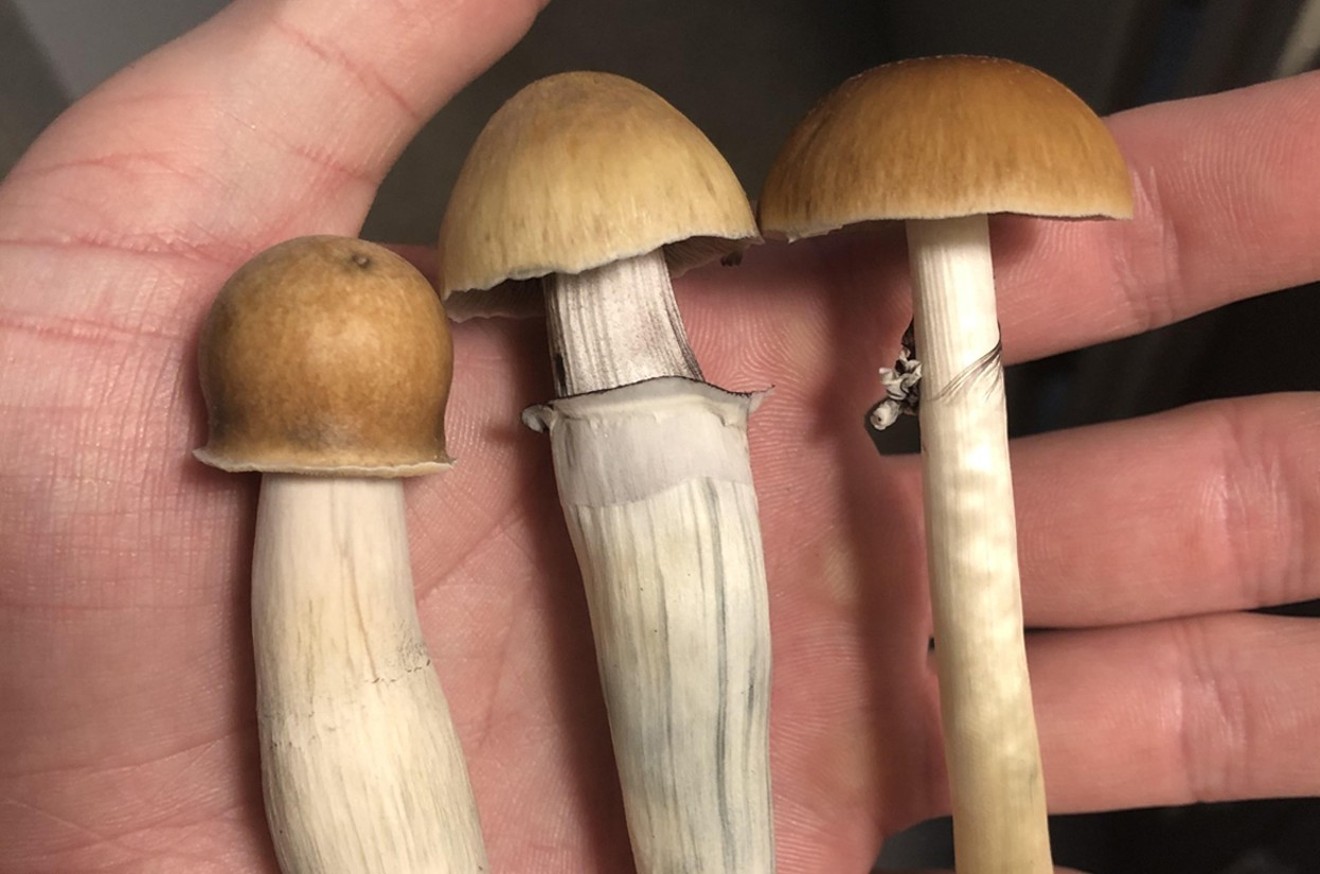"I personally don’t have a problem with [people sharing mushrooms] as long as there’s not money being exchanged. I don’t think that we would be prosecuting people who, for example, are giving some to their friend or relative. I think the selling it is clearly where our focus is," Denver District Attorney Beth McCann said during the March 16 meeting of the Denver Psilocybin Mushroom Review Panel.
McCann's comments came as members of the panel, which is composed of local law enforcement officers, decriminalization advocates, mental-health practitioners, lawyers and Denver City Councilman Chris Hinds, discussed the psychedelic mushroom policies they plan to recommend when the panel meets with Denver City Council this spring.
In addition to suggesting that council formally decriminalize sharing of psychedelic mushrooms, the panel also plans to recommend that it establish a working group to look at uses of psilocybin in therapeutic settings and medical situations. This group would also explore establishing a psilocybin research site for first responders and military veterans struggling with PTSD and substance-use issues.
"The amount of PTSD in first responders is tremendous, especially after this COVID situation, and that just boils right over to military. Military just has tremendous amounts of PTSD," Jamison Brown, a captain with the Denver Sheriff Department, said at the March 16 meeting, advocating for the research site to include not just retired first responders, but also those still on active duty and military personnel. Studies conducted by researchers at some of the world's top universities have shown that psilocybin, the active ingredient in psychedelic mushrooms, has significant potential therapeutic benefits.
The panel also plans to recommend that council decriminalize group facilitation of psilocybin use in private settings. While it has not settled on the number of people who can be involved in such a gathering, panel members agreed that the intention is not to create Burning Man East in City Park.
"Having a sober sitter or guide available and on hand to steward a person through their experience is an integral component to safety and responsible use with psilocybin," says Kevin Matthews, the head of the Decriminalize Denver campaign who is now lobbying on behalf of psychedelic policies at the Colorado Legislature. "Our recommendations demonstrate the commitment of this panel to not only public health and safety, but also public education and normalizing the therapeutic potential of psilocybin mushrooms in Denver."
Notes Matthews: "One of the most incredible things we learned last year is that most folks are utilizing psilocybin for health and personal growth reasons, not necessarily recreational use."

The Denver Psilocybin Mushroom Review Panel, shown here in February 2020, will make its recommendations to city council in the coming months.
Conor McCormick-Cavanagh
The panel will also recommend that council approve a public-awareness campaign around responsible psilocybin use, and greenlight training first responders on psilocybin harm-reduction practices.
The language of the ballot initiative, which was approved by a slight majority of Denver voters, called for establishing the panel; over the past year, it's been studying the public health and safety effects of psilocybin decriminalization in Denver. For any of its recommendations to take effect, however, Denver City Council would have to pass an ordinance enacting them.
For decades, the federal government has classified psilocybin as a Schedule I substance, which the Drug Enforcement Administration defines as "drugs with no currently accepted medical use and a high potential for abuse." But public opinion on the fungi is changing.
Since Denver made history by becoming the first American city to decriminalize psychedelic mushrooms, other municipalities, including Washington, D.C., and Oakland, have decriminalized not just mushrooms, but other natural psychedelics. In November 2020, Oregon voters decriminalized simple possession of all drugs and set up a framework for psilocybin-assisted therapy.
During the March 16 meeting, Matthews asked McCann and Joe Montoya, investigations division chief of the Denver Police Department, whether they agreed that decriminalization has not "presented a significant public health or safety risk."
At first the two were hesitant to agree with that blanket statement. But then Montoya offered this: "I could state that since it’s been enacted, there has not been anything that has really stood out to us in any specific incident that would indicate that the changing of this law, you know, caused any significant issues to the community to this point."
Added McCann, "And I would agree with that."
Both the DPD and McCann's office contend that they've been abiding by the requirements of the ballot initiative, which decriminalized the personal possession, use and growth of psychedelic mushrooms. The ballot measure did not decriminalize dealing mushrooms, and those caught doing so in Denver are still subject to arrest and prosecution. The Denver ordinance also does not affect federal law enforcement actions.












